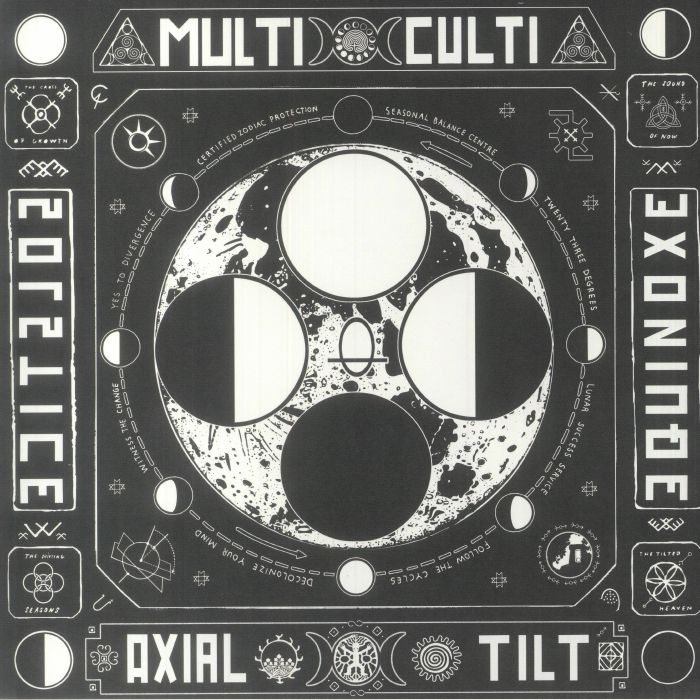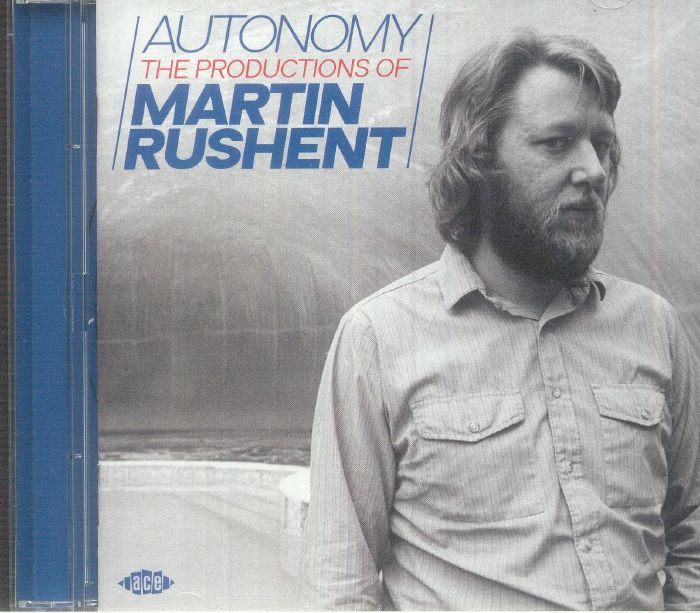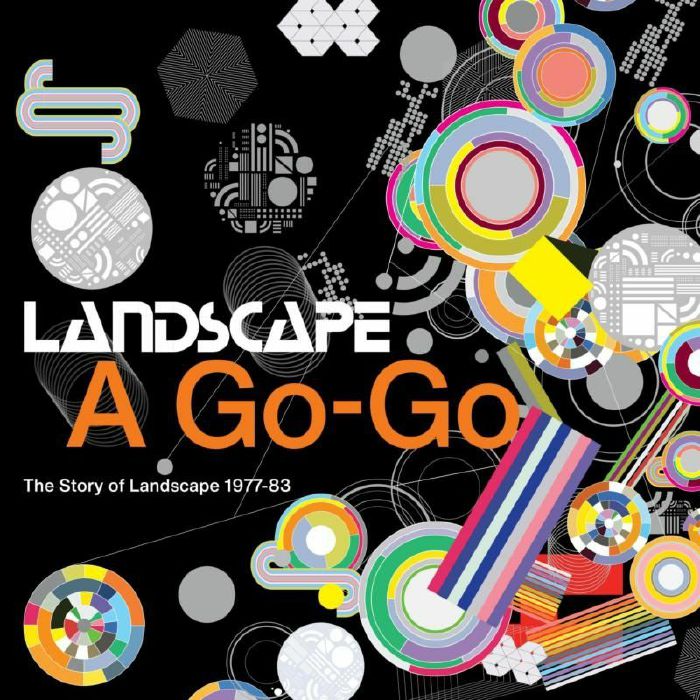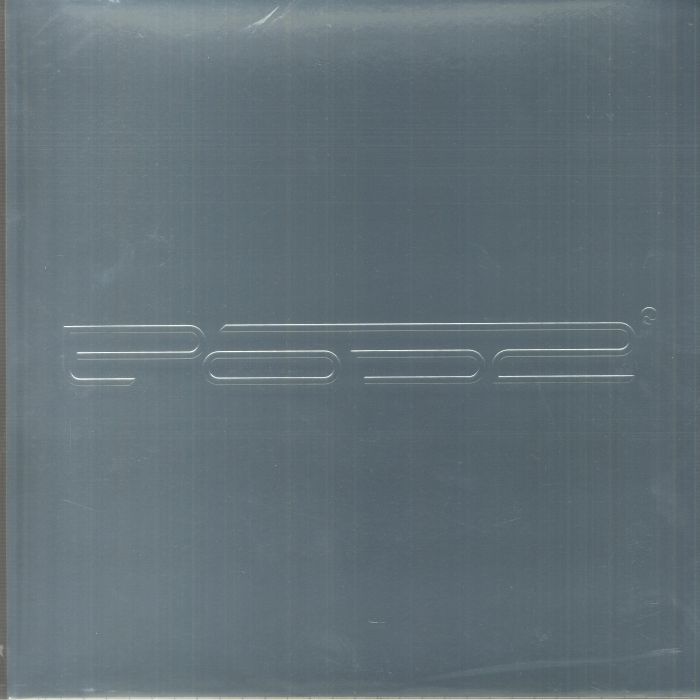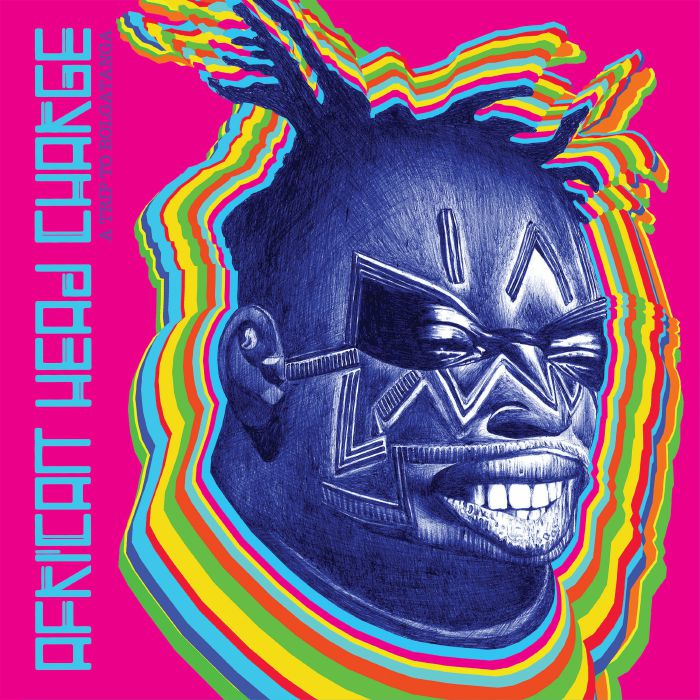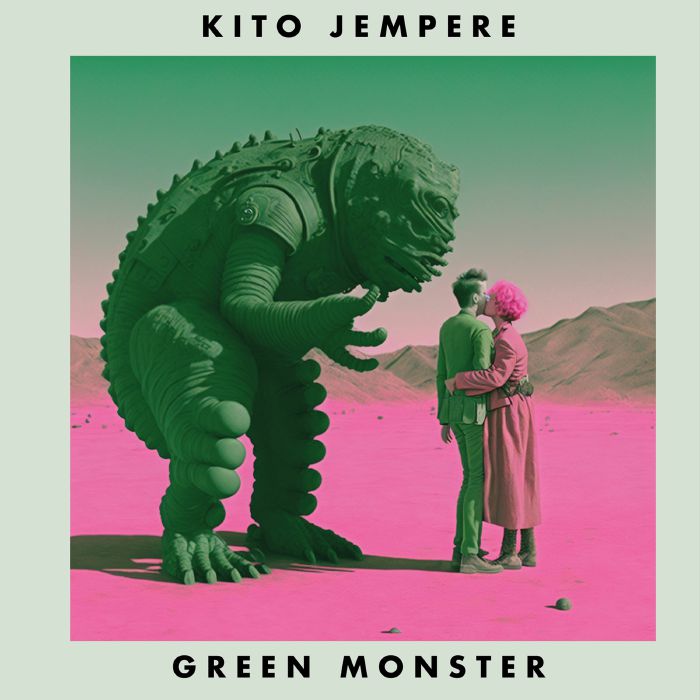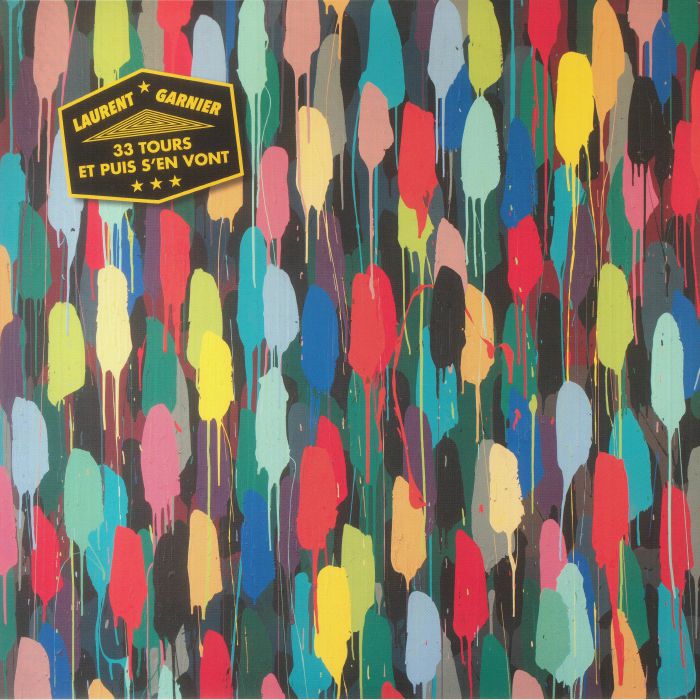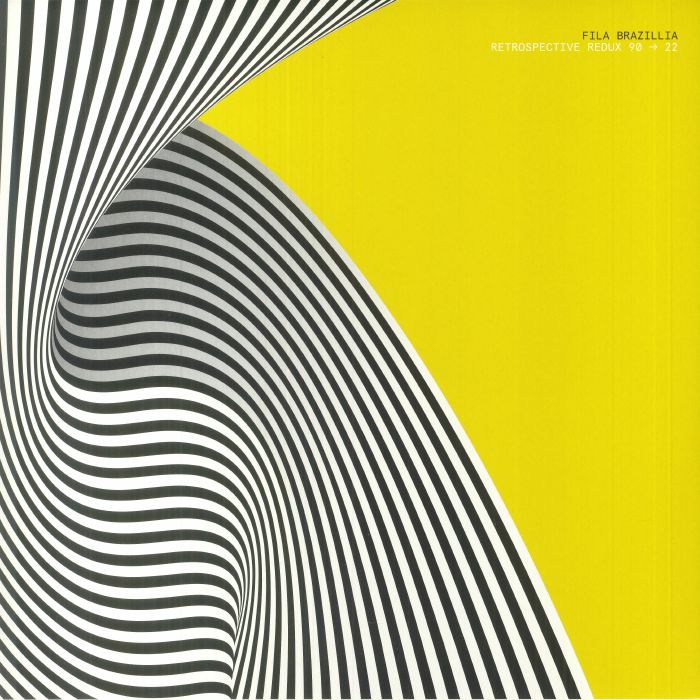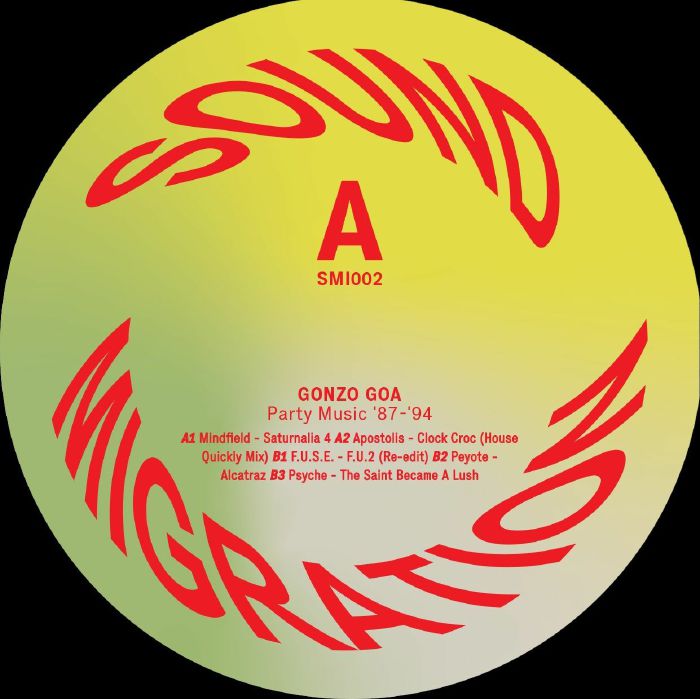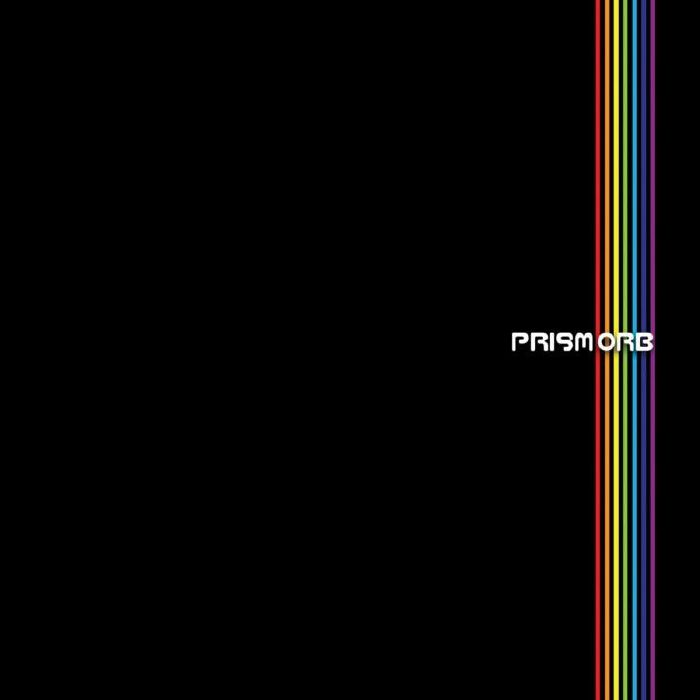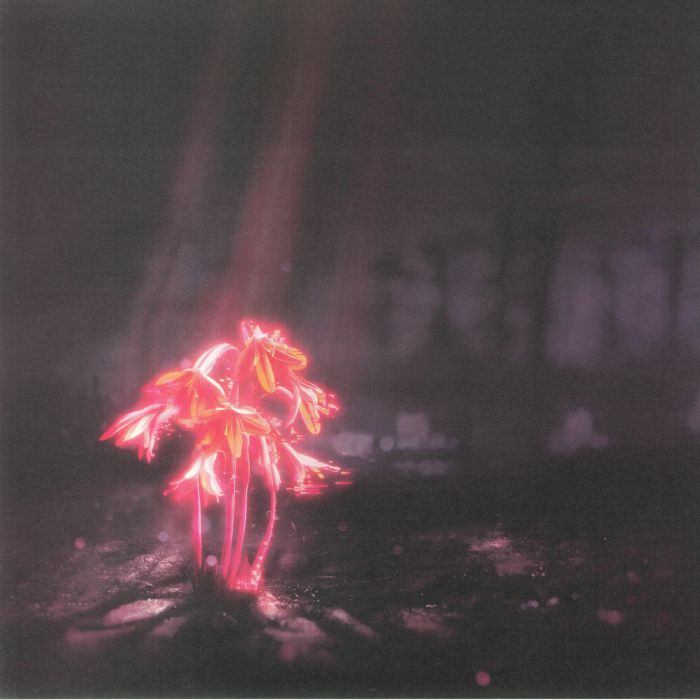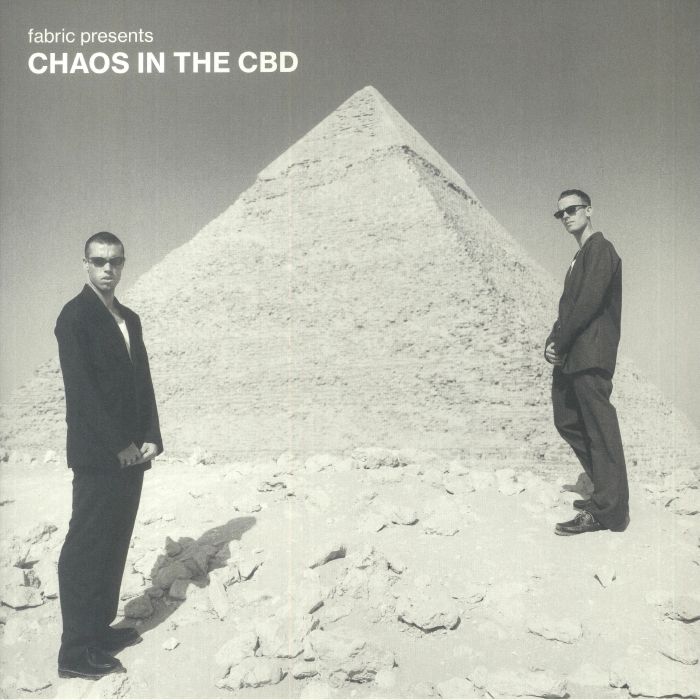From drum & bass to mathematical grindcore, the must hear albums of the week
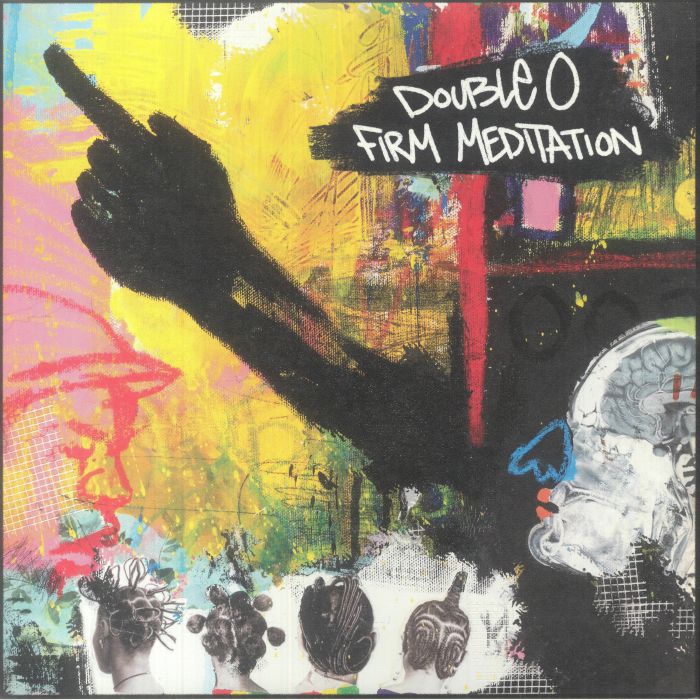
ALBUM OF THE WEEK
Double O – Firm Meditation (Rupture)
Few can match the Rupture crew for positive influence on modern-day d&b. The legendary club sessions spearheaded by David ‘Double O’ Henry and Indi ‘Mantra’ Khera have become a nexus for the scene’s vitality, holding true to the underground roots while incubating fresh talent and building a grassroots community. Rupture’s importance is no secret these days, and in turn Mantra and Double O are becoming more widely recognised as artists in their own right. Mantra has only recently minted her first solo EP on Sneaker Social Club, but Double O has been steadily building a catalogue of killer plates since the mid 00s, appearing on labels like Hidden Hawaii and 117 as well as through Rupture’s in-house label.
Henry’s roots in production reach right back to the early 90s and the breakthrough hardcore years, though. A few scattered 12”s of ruffneck breakbeat can be found under the 007 moniker, and while they might not reach the heights of what he makes now, they do set out certain qualities which hold true right up to his debut album proper, Firm Meditation. Ragga jungle was one of the earliest iterations of sped-up breakbeat to come through in a natural cross-pollination of soundsystem cultures, and Henry’s tracks displayed Jamaican roots from the get-go. He’s maintained that approach through the modern arc of his productions, and Firm Meditation comes loaded with the same unmistakable traits – toasting MCs, dub siren blips and of course bucketloads of bass. What’s different about Henry’s approach is how he folds these elements into his tunes.
Ragga jungle was typically about frenetic energy driven by aggravated Amens, but Henry’s approach is more nuanced. This album undoubtedly rolls with physical intent, but it reframes the abundant soundsystem samples with fresh approaches to synthesis and production. Rupture regular Theory chimes in on ‘Repatriation’ as he and Henry explore a needlepoint drum hypnosis which leaves ample room for dubwise FX splashes there just wouldn’t be the space for in typical ragga jungle. ‘Corsica Groove’ zeroes in nimble break slicing more akin to Platinum Breakz-era Metalheadz, cooling off the eventual Amen flare ups with icy pads and punctuating the groove with ‘uh’s and ‘ah’s from an unknown MC.
There is a classic dimension to Henry’s sound too. ‘Testing Ground’ clatters with the thunderous gallop of OG breakbeat hardcore, teetering on the edge of 4/4 jungle tekno. ‘Probe’ goes one step further into those open-ended, experimental years by dropping a seminal sample of techno from 1991 courtesy of LFO’s ‘Mentok 1’ – whether the track title is a wry nod to another LFO b-side from the same period remains to be seen.
While Firm Meditation is resolutely focused on jungle and d&b from start to finish, Henry sounds free in himself to indulge many different avenues. ‘Victory V’ taps into warm, melodic keys and some welcome Apaches, ‘Bad To Worse’ revels in light-footed drum funk peppered with Detroit-tinted synth flourishes and ‘The Game’ heads down a disorienting labyrinth of breaks with the non-linearity which made so much early jungle so mesmerising.
Through everything, what’s abundantly clear is how steeped in the culture Henry is. Firm Meditation is the sound of someone who has spent their life entrenched in breakbeats, and much like Rupture overall it edges the sound forward without losing sight of the fundamentals. This isn’t about reinventing the wheel(up), but rather celebrating everything brilliant about the genre as it stands 30 years deep. If you value the ‘real’ in modern jungle, this album is all you need to hear.
OW
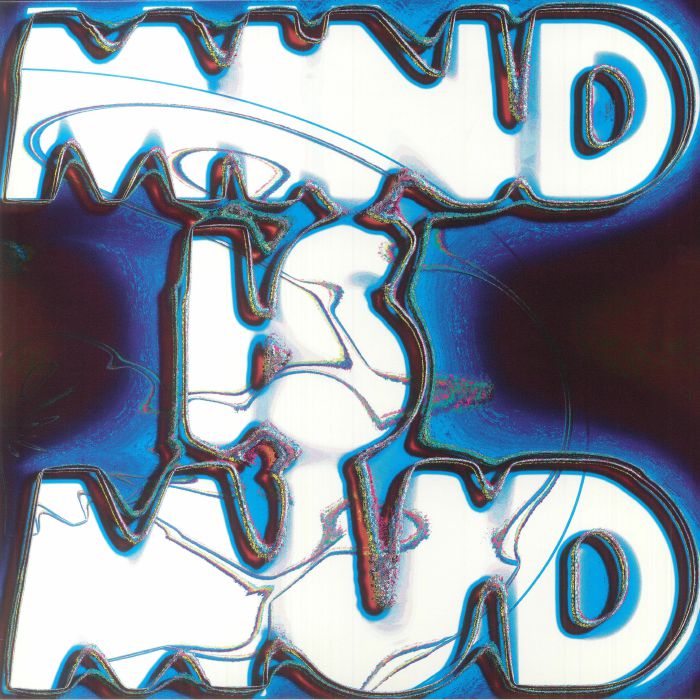
Celine Gillain – Mind Is Mud (Cortizona)
Resisting the hackneyed comparisons one might infer from her work to Laurie Anderson or Leslie Winer, Celine Gillain’s latest album Mind Is Mud shows us that the Brussels-based artist seeks to explore more than just one facet of her craft. Here she explores the concept of the “mudflow”, “a swamp of emotional confusion” and a more figurative, perhaps major version of the post-COVID brain fog many of us know all too well. Those who have experienced brain fog usually recall it as unpleasant – a slurred affect, diminished ability to communicate well, and a general aura of lethargy. But for Mind Is Mud, Gillain asserts that she embraced, rather than resisted, her bout of brain fog (whether really, or figuratively after the fact), opening up an untrodden wealth of cool.
The project feels like finding a pearl at the end of a mudslide, thanks to the fact that the easiest pearls to find, not blocked by mud, have all already been taken. One of few ‘unmuddy’ elements sounds to be Gillain’s voice, which sings and speaks like the only vestige of non-lethargy, of ‘sanity’ (for wont of a better word). Immediately on the opener comes the stressful mid-pandemic imposition of capitalism – “I need money!” – while themes of renewal still poke through – “like lightning from our footsteps, we started over…” Soon come the impressive vocal arps of ‘High Definition’ and the janky madhouse moods of ‘The Authoritarian’, which are difficult to describe beyond their paranoid, random-humoured feel. ‘Peer Pressure’ is more measured and definable, a dark grime number with themes of assassination and revelation. The stylistic fog expands, with the incredible beatless ballad ‘My Secret’ hearing Gillain indulge careful vocal timestretchings on sibilant parts, giving the impression of an unreliably serpentine narrator. Then comes an increasingly arhythmic coda, with ‘You The Client’ and ‘Empty’ sounding like broken club bits held together by toothpicks and paperclips, with mud as the binding agent.
Where “muddiness” is a term in the music production world to refer to clashing frequencies, which produce a subjectively unpleasant sound not to the tastes of most baithead mixing engineers – problematic ideas of dirt, mud and insanity held in mind, too – Gillain uses the idea to great, ironic effect here.
JIJ
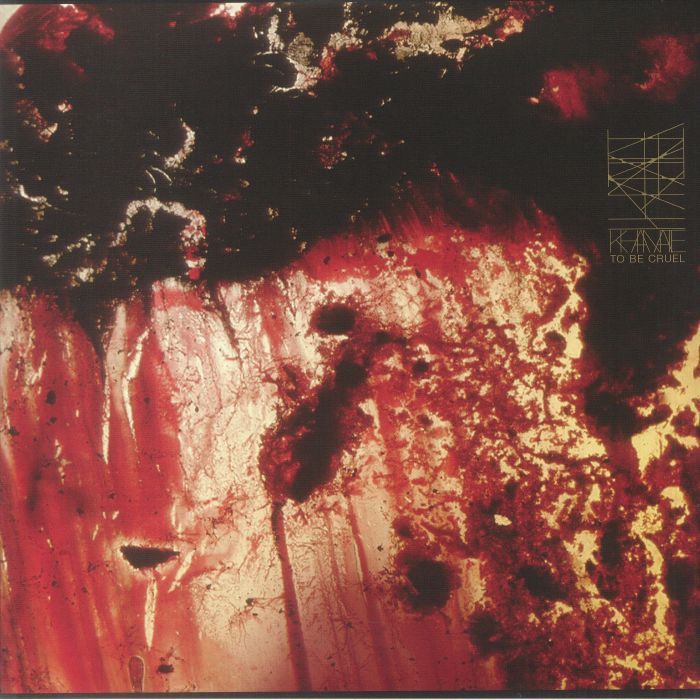
Khanate – To Be Cruel (Sacred Bones)
Originally conceived at the turn of the millennium, New York based industrial-tinged drone-doom supergroup Khanate amassed a devout cult following through their utterly horrid form of caustic, audible malevolence. A supergroup in essence, made up of James Plotkin and Alan Dubin of OLD, Tim Wyskida of Blind Idiot God and Stephen O’Malley of Burning Witch and Sunn O))), the members would officially disband in 2006, three long years before the arrival of their long-gestating posthumous fourth full-length Clean Hands Go Foul.
Citing lack of commitment from certain members, the band had gone on record several times to express their sincere doubts that any form of reunion would ever take place. Hence the shock and sheer elation when they surprise dropped their despicable comeback in the form of new fifth album, aptly titled To Be Cruel.
At three beastly monolithic tracks all reaching the 20-minute mark, every inch of the menacing noise-doom chaos that originally made Khanate such an underground darling of early 21st century experimental and extreme metal is ever present here.
From the squelching distorted static that lingers throughout opener ‘Like A Poisoned Dog’, constantly testing and demanding patience while imbuing each sonic second with torrential dread, to the bombastic sludging heft towards the back end of the title-track, To Be Cruel is hideous listening even by Khanate standards, as if to make up for their absence with their most uncomfortable and confrontational collection yet. Even vocalist Alan Dubin sounds utterly deranged like an unapologetic soul spewing its venom from whatever cavernous ring of hell it now resides due to its unspeakable sins.
While no official reunion or tour dates have been announced as of yet, they have revealed that all four previous LPs would be receiving the reissue treatment in the near future, delighting avid followers of aurally debauched soundscapes the world over. Whether you’re already a member of the cult, or a newcomer to the nightmare fuel that is Khanate, you’re sure to abandon all hope once spiralling down their musical psychosphere, and realising why their return is such a joyous delight within the realms of uncompromising metallic extremity.
ZB
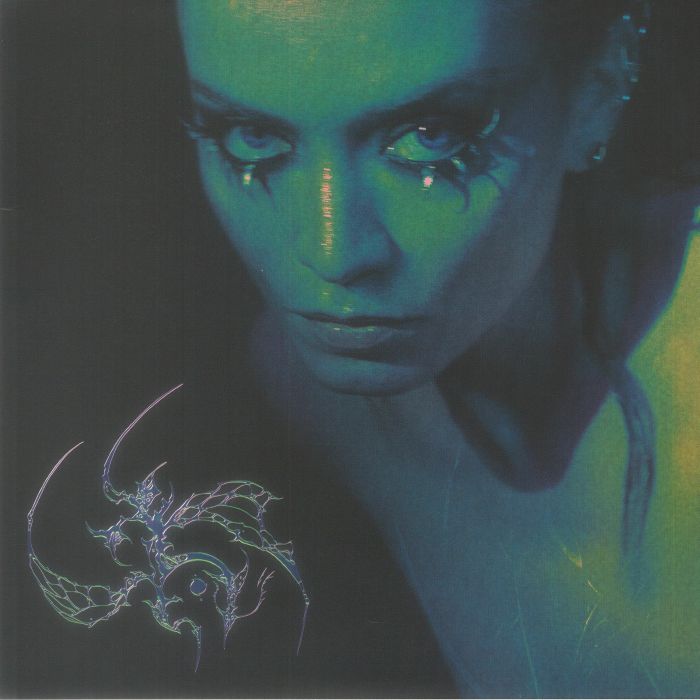
Zanias – Chrysalis (Fleisch Germany)
Criminally underrated as they go, Zanias (Alison Lewis) returns for her third full-length album, Chrysalis, following up 2021’s Fleisch debut Unearthed. Just as a chrysalis is an intermediary stage between something larval and something fully developed, the album explores Lewis’ recent experiences of transitionings-between; moving gracefully through grief, evading burnout, escaping capitalism.
“Darkwave empress” is just one of many popular crownages to have been ascribed to Zanias over the years. But Chrysalis hears her move out from just this, indulging in increasingly dark-fantastical, glossy sonics. And that’s not to mention her newfound use of a very contemporary visual style. An ultra-sleek, almost wyvernal abstract sigil appears on the cover, screaming “edgy, experimental, electronic” – not always the case for Zanias. Every sound is imbued with a synaesthetic turquoise, adding an arcane feel to the album.
It’s clean and maximized to the glossiest brim, evoking the glint of an age-bitten, magic weapon: our highlight ‘Metrics’ comes as a delectable slice of metallic ethereal pop, for all intents structured like a standard pop track, but stylistically dipped in an intense sonic banishment liquid. Stuttering harmonies play out in its reflections, a theme also translated to the lasery ‘Lovelife’, which echoes a sad ghost of hi-NRG with it sixteenth-note FMs, before transcending upwards into a stunning white noise-laden climax. Lyrically and vocally, Zanias keeps it mournful and pastoral, with the track ‘Closing’ refraining “somebody (who) loves me watched me die,” and the dulcimery ‘Teatree’, on which she confesses “it’s kinda hard to get where I’m going so far”. We imagine a banshee in equine form, embarking on an inhospitable quest.
Our favourite albums are the ones in which every sound seems to have come from the same world. And while it’s not without easy references – fans of Waterbaby, Fauness, and Cocteau Twins will all love this – the playful genre tags that come with Chrysalis tell us all about the very original world it came from: “gravewave”, “icewave”… this is an impressive project, and a cohesive set of inspirations from which all other artists and producers should take note.
JIJ

Enforced – War Remains (Century Media)
Hailing from Richmond, Virginia, hardcore crossover thrash beasts Enforced have stood out in the scene thanks to their loyal adoration to the thrash metal titans they draw so much influence from. While many crossover acts such as Mindforce, Drain and Exhibition do their utmost to strike an ideal balance between the frenetic retro-riffage, technical leads and pummelling breakdowns, Enforced skew closer to the likes of Power Trip in terms of metallic bite with adjacent hardcore motifs.
Produced by Eternal Champion’s Arthur Rizk (Ghostemane, the aforementioned Power Trip), War Remains is the band’s much anticipated third full-length, following on from their breakout 2019 debut At The Gates, and the much heftier and more refined Kill Grid released in 2021.
Boasting the reliable bevvy of skull-caving grooves and trudging hardcore chugs such as on the bouncing title track, to Slayer’s Kerry King worship face-melting guitar solos on standout single ‘Hanged By My Hand’, Enforced find themselves in a unique middle-ground between the metal headbangers and hardcore kickboxers, embraced on both sides and bridging the still seismic gap between the two similar yet not identical scenes of heavy music.
Bruising, anthemic, and not afraid to either pay homage to their 80s heritage or channel much more modern hardcore venom, War Remains is the album many knew the band always had in them, and with a Century Media backing, it feels like their ideal time to lead the call for the ever-burgeoning crossover scene.
ZB
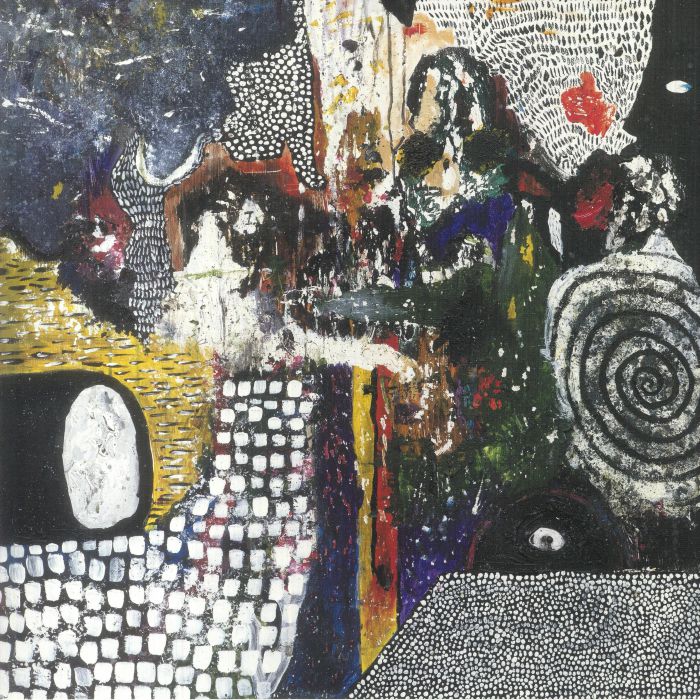
Bdrmm – I Don’t Know (Rock Action)
A new home for Hull shoegazers Bdrmm and with the move from Sonic Cathedral to Mogwai’s Rock Action comes a bump in quality too. Not that their 2020 debut album ‘Bedroom’ was shabby in any way, far from it, but I Don’t Know feels like a step up.
That said, it was recorded in the same studio (The Nave, Leeds) with the same producer (Alex Greaves) as their debut, so what’s the difference? “We’re still coming from the same place,” says singer-guitarist Ryan Smith, “but the influences have got much broader.” Boy, have they. Seems they’ve been checking out everyone from Steve Reich to Boards Of Canada and while the shoegaze foundations are still very much in place, they’ve build a new extension full of strings, synths, samples, beats and the like.
For example, opener ‘Alps’ slowly shimmers into view. With warm drones and melodic keys, not to mention an insistent beat deep in the background, it comes on like an ambient dance remix. The band reveal it was written as they drove through the Alps listening to “Thom Yorke’s electronic stuff”. It shows.
Of course, old habits die hard and they’ve not done a total volte-face. All this fresh listening they’ve been doing and the new-found influences it’s unearthed only compliments the vast walls of guitars on tracks like ‘It’s Just A Bit Of Blood’ or ‘Pulling Stitches’, while ‘We Fall Apart’ has that motorik groove which was much admired on their debut outing.
And then there’s the eight-minute plus closer ‘A Final Movement’. It’s a melancholic epic that gently retreats out of sight like the opener shimmered into view. Five minutes in the vocal fades and haunting strings strike up, the song swelling towards it conclusion and a gentle church bell fade.
It’s shoegaze for sure, but Bdrmm are bringing something new to the table here. All strength to them, this is a bold record.
NM
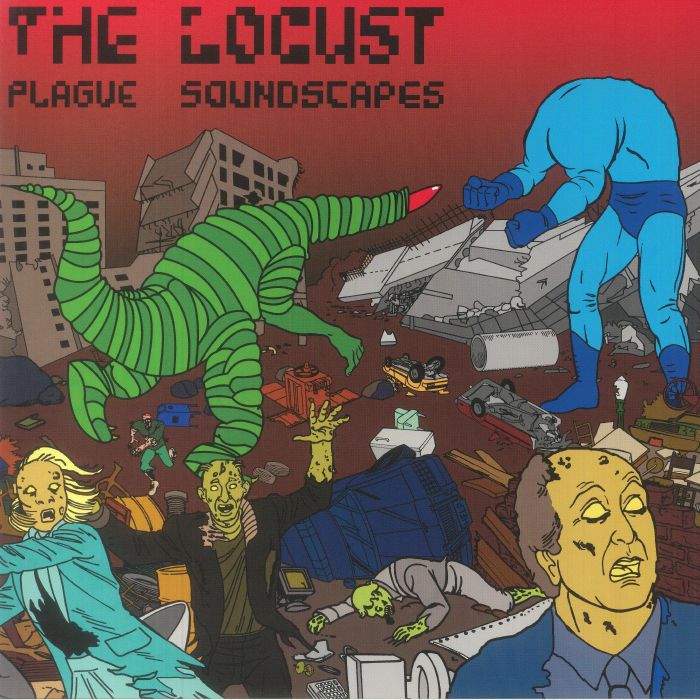
The Locust – Plague Soundscapes (reissue) (ANTI)
Los Angeles noisecore synthpunk insects The Locust are still regarded as one of the most ridiculous, absurd and challenging acts of the early 21st alternative scene. Dressed in matching insectoid morphsuits and playing an overwhelming concoction of mathematical grindcore and spazzed out punk, their formula was directly poised to be as diabolical as possible, whilst retaining a tongue-firmly-in-cheek quality due to their hilariously overlong song titles and political-driven hyperbolic lyrics.
Whilst remaining on indefinite hiatus following the release of their third and subsequently final album New Erections in 2007, the group would reform in 2019 for a slew of festival appearances adorned in new uniforms to usher in their next era, which would be tragically cut short by the untimely passing of drummer Gabe Serbian, ultimately putting an end to all future tour dates and plans for new material.
It’s a bittersweet concept then that the group’s masterwork, 2003’s incomparable Plague Soundscapes has finally been reissued for long time followers and newcomers alike to celebrate its 20th anniversary. Clocking in at 21 minutes spread out over 23 tracks, with barely any reaching the one-minute mark, the album was a shot of sugar-coated methamphetamine directly to the veins of an overly serious scene which succeeded at maximising, parodying and mutating punk to a state of frenetic shitheadedness that no group has ever come close to replicating.
From the squelching synths of ‘Live From The Russian Compound’, to the technical wizardry of ‘Teenage Mustache’, to the start/stop mangled groove of ‘The Half-Eaten Sausage Would Like To See You In His Office’, the ability of the group to marry head-melting compositional knowhow with severely deranged audible abandon, infuriated, captivated, confused and enthralled in equal measure, while their howling, bratty three-vocal pronged approach became their iconic/ironic calling card. And with initially bizarre yet eerily prophetic lyrical musings such as “Want to stay young? Well abort now, otherwise you’re going to make a great dead cop”, it’s abundantly clear how of, ahead, and not of any time or era The Locust truly were. In short, this is what would happen if members of Devo and The Residents started a grindcore band, and no further elaboration should be necessary.
ZB
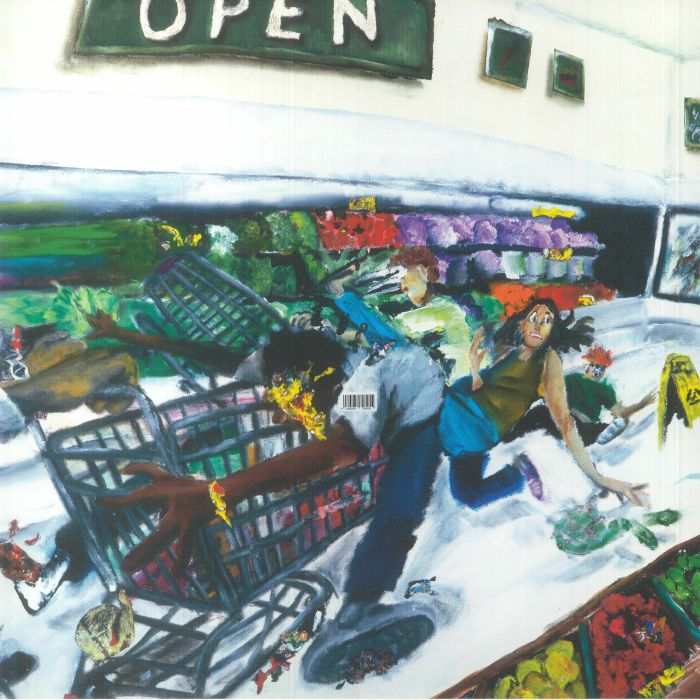
Montreal’s Lunice has been a busy boy since debut LP CCCLX. A slew of singles and remixes have kept us going in the six years since, with contributions to video game soundtracks and movie scores reflecting both a broadening of project scope and, in wider terms, the increasing presence of electronic and ‘dance’ producers in mainstream visual culture products. This is before we come to the impressive live work ethic in the form of a relentless touring schedule, and, of course, his sometime collaborative platform with Hudson Mohawke, TNGHT which itself reignited in 2019 following its own six year break.
OPEN is very much a new bookend, then, reflecting where things have gone in the time between album one and now. In many ways, it continues to build on the foundations its predecessor laid. A sticky, head-nodding, hypnotising blend of humid hip hop, trap and bass-heavy beats, proving, among other things, that the studio head responsible is apparently capable of creating some of the densest and meatiest drums in town. Standout gems include the chip music-hued ‘Life Happening’, juke and garage influenced ‘Make Face’ and ‘Open’, and the playful-yet-heavy lead single ‘No Commas’ —one of the cuts featuring Cali Cartier.
MH
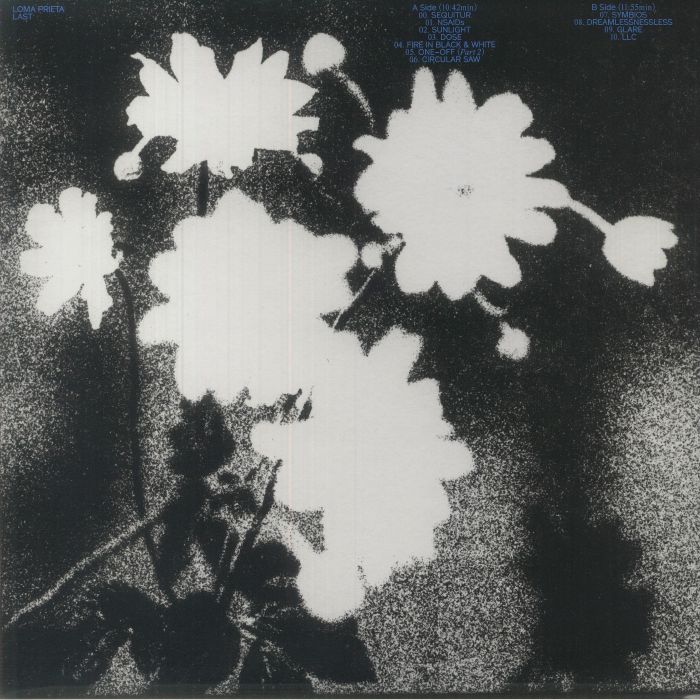
Loma Prieta – Last (Deathwish)
San Francisco screamo revivalists Loma Prieta have been keeping the underground emo-powerviolence/skramz concept at the forefront of their sprawling, cathartic sonics since 2005, releasing a slew of EPs, full-lengths and splits with other scene greats such as Italian legends Raein.
Returning a near-decade since the release of the expansive post-rock indebted 2015 LP Self Portrait, the years of lockdown, American political poison and the encroaching ugliness of the modern world have all come to be excised on Last, their sixth and most culminative work to date.
Retaining much of the mercurial melodies the group have embraced in their later years, cuts such as the unhinged ‘Sunlight’ and ‘Circular Saw’ teem with purposefully compressed, antagonistic fuzz, smothering the tortured vocal shrieks at every turn. The latter harbours melancholic slowcore shoegazing motifs akin to influences such as Saetia or City Of Caterpillar, which are explored to full effect on the near-six-minute penultimate track ‘Glare’, offering a swaying dichotomy between muted vulnerability and despairing abrasion.
After an eight-year creative respite, Last feels like as if Lome Prieta never left; distilling over two decades of hardcore, screamo and post-rock into one harrowing, hyper-aggressive yet equally delicate work of cathartic expression.
ZB
This week’s reviewers: Neil Mason, Oli Warwick, Zach Buggy, Martin Hewitt, Jude Iago James.
The writers’ verdict
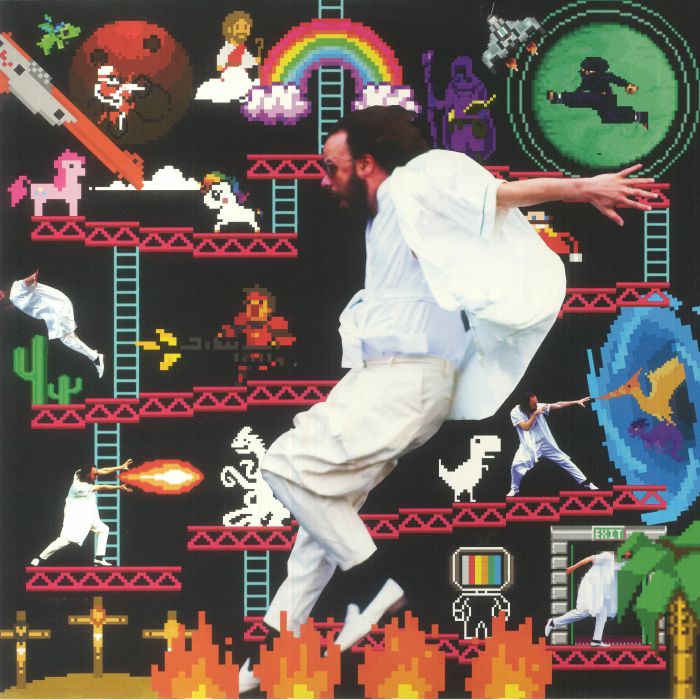
ALBUM OF THE WEEK
Arp Frique – Analogue People Digital World (Colourful World)
No one could accuse Niels Nieuborg of holding anything back in terms of creative intention, his effervescent catalogue, after all, brims with inventiveness and colour. Even set against the rest of his work, there’s a palpable sense of abandon and release throughout his latest album recorded under the Arp Frique moniker, Analogue People Digital World. Expansive, freeform, elaborate and roundly off-kilter, he certainly appears to have been in an unabated mood when composing the music. An artist accustomed to dazzling listeners with his unique blend of universally-inspired fusion grooves, the sound of Arp Frique has been charming discerning music lovers since his brilliant ‘Nos Magia’ debut arrived on Rush Hour back in 2017. Now with three long-players under his belt, the last of which, The Seed featured an all-manner of pearls, arguably capped by the life-affirming wonder of lead single, ‘Nyame Ye’, which featured a searing lead vocal from singer, Mariseya. Though multi-instrumentalist Niels plays all of the parts on his studio recordings, such is the clarity of his creative vision, he certainly isn’t averse to collaborating when it comes to vocals, or indeed, when it comes to live performance (he couldn’t very well play all of the instrumentation at once, after all).
Mariseya once again features heavily on the new album, alongside guest appearances from Sumy and, frequent collaborator, Americo Brito. The music once again arrives via the Colourful World label Nieuborg runs alongside his homie Antal, the home of each of Arp Frique’s albums to date. While Afro flavours are a key component of much of the Arp Frique sound, all manner of disparate textures can be detected in his work, and this is certainly true of Analogue World Digital People. Vividly demonstrating this fusionist aesthetic is the first track, ‘Spiritual Masseuse’, where post-punk, disco, funk and ‘80s pop are among the many forms reimagined through the kaleidoscopic Arp Frique Lens. Loose, joyous, and equipped with just a little tongue-in-cheek swagger, it’s a powerful opening statement and expertly sets the tone for what follows. The high-life thrust of ‘Omampam’ bursts with energy, as Mariseya delivers a typically alluring vocal performance, albeit with a wonderfully unhinged edge, as she sings her heart out over oddball synths and rousing rhythms. Tripped-out reggae is next through Nieubourg’s glorious sonic mangle, the devotional vocal joined by wobbly synths as polyrhythmic beats flit between syncopation and four/four propulsion.
There’s unquestionably an aberrant thread coursing through the album, a feeling of unfettered freedom that endows the music with contiguous energy and boundless spirit. The freak funk of ‘Digital World’ is testament to this ethos, with hallucinatory shades of George Clinton and Prince gliding through waves of off-world synth solos and densely packed instrumentation. The same is true of ‘Go Now Wetiko’ featuring both Mariseya and Americo Brito, one of the most immediate of the collection, its catchy lead melodies helping to sear it into the memory banks after even the most cursory of listens. ‘Roi Salomon’ certainly challenges the former as single material, with gorgeous lead vocal and synth accompaniment overflowing with charisma as the deviant arrangement brilliantly unfolds. Finally, closing jam ‘Duncan Truffle’ leaves on a particularly high note, with psychedelic synth-funk taking centre stage as space-age pads drift over steady drum machine rhythms. There’s plenty to digest here, but suffice to say this is spectacular work from Arp, who, it has to be said, is surely one of the most imaginative musical mavericks lighting up the more cultured end of the greater dance spectrum in these most bewildering of times.
PC

Camille / Chez Damier / Nico Lahs / VA – Make Up The Edits 3 (Adeen)
Yet more imaginatively spun edits here from the Adeen Records camp, with label boss Camille joining forces with Chicago house hero Chez Damier and Italian producer Nico Lahs on the third instalment of Make Up The Edits. This is the second time this inspired ensemble have combined, having successfully curated a killer selection on volume two following Alkalino’s alluring series opener on volume one. In keeping with the funks-flecked sonics that preceded it, this chapter sees the protagonists take an especially deep dive into the soul-drenched corners of their combined record collections before lovingly repurposing their digs with today’s floors in mind. Presented with a deliciously gritty anti-gloss, the music bumps throughout, reframing free-flowing musicality via the trusty sampler as propulsive loops combine with expansive passages of generally feel-good vocals and instrumentation.
There isn’t a dull moment in sight, as the collection burst from the blocks with the rolling bass, granny strings and seductive vocals of Wayne Ford’s ‘Dance To The Beat Freakout’ edit. Next, the rousing strings and slap bass of Sherman Hunter’s ‘Dance To The Freedom’ respectful tweak, before the boogie flex of The Limit’s ‘She’s So Divine’ is given an enlivening house injection. ‘African Bump’ sees undulating guitars combine with rousing horns as walking bass powers the groove, while the good time flex of ‘Sunny’ flips the script on the Yambu classic with some nimble cut-and-paste flourishes. ‘Happy Music’ breathes new life into the already loveable Mastermind track, with careful splicing adding energy to the hyper-positive music as the beefed-up bottom end promises to ignite the dance, while the powerfully energetic ‘Yes’ threatens to tear the roof all the way off. Finally, completing an entirely effective selection is ‘Changes’, where sultry vocals glide over an intoxicating bed of full-bodied bass and percussive rhythms.
PC

Frightened Rabbit – Pedestrian Verse (10th Anniversary Edition) (Atlantic)
It’s been almost half a decade since the tragic, untimely passing of Frightened Rabbit frontman Scott Hutchison, while his band’s seminal fourth full-length Pedestrian Verse semi-celebrates its ten-year anniversary. Battling feelings of mental instability, alcohol and substance abuse as well as cataloguing the bruised emotions that come from failed relationships, Hutchison’s poetic and brutal earnestness resonated with listeners across the globe who found contemplative solace in the songsmith’s hopeful weariness.
While The Midnight Organ Fight is often heralded as the high watermark of their discography, Pedestrian Verse struck a chord with its fully realised sound that showcased the most communally crafted work they had amassed up until that point. From the slow churning piano lilt of opener ‘Acts Of Man’ which begins with the inebriated self-deprecating admission – “I am that dickhead in the kitchen giving wine to your best girl’s glass”, a subdued tapestry of late night after parties, drunken flirtations and endless regret is spun through fractured tales, some hopeful like on the triumphant clamour for true connection with ‘The Woodpile’.
Others such as the sobering narrative of ‘State Hospital’, which details a woman born into abuse and poverty only to find herself another judged statistic by adulthood, or the literal suicide ode ‘Nitrous Gas’, have only grown more challenging and intense due to the upsetting circumstances around Hutchison’s passing.
The psych-folk twang that gives way to cathartic redemption on the immensely powerful closer ‘The Oil Slick’, features one of the late writer’s most positive pleas for peace and acceptance, again simultaneously elevated and shadowed by the knowledge of what transpired five years on.
Featuring the original three bonus tracks from the deluxe edition, as well as several previously unreleased B-sides and alternate takes, this definitive anniversary collection offers a chance to revisit and dissect further a work that has not only aged gracefully, but sadly become another troubling artifact of a creative’s genuine struggles, masked by their resoundingly effective ability to turn pain into processing and healing for all but themselves.
ZB

Angel Bat Dawid – Requiem For Jazz (International Anthem)
Angel Bat Dawid wants us to talk. The subject will make some less comfortable than others, but the message isn’t the shame of privilege, but getting the privileged to understand, as far as possible, African American experiences from the early-mid-20th Century to today. And learn how intrinsic jazz is to that identity.
If that sounds deep, you should hear the album. Inspired by, and at times directly referencing, Edward O. Bland’s landmark 1959 film The Cry of Jazz, Dawid’s 22-track odyssey is less an album and more mood board of ideas, sentiments, sounds and excepts. Just as the movie interspersed archival footage of Black neighbourhoods in Chicago with performances from legends like Sun Ra and his Arkestra, making a narrative from juxtaposition and collage, here we have what can only be described as a dramatic performance piece on record.
Requiem is listless and varied, giving you the feeling of being built from movements and moments rather than tracks per se. Of course, there are songs here, but the records rich evolutionary structure means we’re less likely to remember them in silos. Not that the theatrical brass, wind, keys and choruses of ‘Joy N’ Suff’rin’ and ‘Chain Around the Spirit’, the looped, hip-hop-infused ‘Jazz Is The Musical Expression of The Triumph of the Negroes Spirit’ and ‘The Negro Transforms America’s Image of Him Into A Transport of Joy’, or late-night strings of downtempo gem ‘The Negro Experiences the Endless Daily Humiliation of American Life Which Bequeaths Him a Futureless Future’, don’t make lasting individual impressions. Nevertheless, when you have a celebrated composer, musician, singer, and educator leading a four piece choir and 15-strong orchestra in musical and artistic conversations around race, racism, prejudice, and the spirit to overcome those structural injustices, it’s about something much bigger than the parts.
MH

Gamut Inc – Sum To Infinity (Morphine)
Morphine Records are a rebellious label, rejecting some of the many faces of platform capitalism to favour their own space to release (their own website). That being said, they’ve also granted us permission to share and distribute their music. This time around comes an EP from Gamut Inc, who (we can’t resist) run the gamut of computer-controlled music machines to produce something of an electroacoustic firework display, Sum To Infinity.
Gamut Inc consist of Marion Worle and Maciej Sledziecki, two composers and local scenesters of the Cologne art curatorial world who like to tinker around with electroacoustic instruments on the side. Their practice differs from most musicians: most of the instruments they use are autonomous, self-made electroacoustic contraptions. They hook these up to generative pre-written compositions made on their laptops, creating physical analogies for gamelan, mallet and glockenspiel (and in the past, there have been other instruments, like church organs). These are then often synced with 4×4 beat structures – just in case these non-schizophonic gizmos need whipping out at the club.
In contrast to 2014’s stunning, pipe-organic ‘Ex Machina’ – which sounds like the virtuosic fluttering of a multicellular woodwind god – Sum To Infinity focuses almost entirely on mallets. Six ‘Series’, A through F, tear through the fabric of danceable and undanceable space. It’s as if indie-famous producer De Leon broke free of his DAW grid and gave over to the presumably infinite possibilities of acoustic music. ‘Series A’ immediately whacks us round the head with the notion of the Risset rhythm, a central concept to the album; these are essentially hazily overlaid rhythms of different tempi and phase, producing an effect of seemingly endless rhythmic ‘shifting’. From there, we must indulge our favouritism: ‘Series C’ is a sinister loomer, with its up-close, windchimey clunks sounding like the internal machinations of an evil Ghibli moving castle. ‘Series E’, too, more or less sounds like what sonic arts masters students might call heaven, but everyone else would call a cacophonous hell of bangs, whistles and matracas. Jokes aside: it’s a great release.
JIJ

Stanislav Karpenkov – Evpatrans (Gost Zvuk)
You’d have to have been paying close attention to hidden corners of Russia’s electronic underground to have picked up on Stas Karpenkov’s work in the past. Such practices are not exactly getting any more straight-forward under the shadow of war and geo-political tension, but he was made a little more visible by linking up with the internationally renowned Gost Zvuk label out of Moscow and making a couple of well received mixtapes for NTS Radio. Now he returns with a full-length album of grainy ambient-not-ambient which feels like it has emerged from the oily moss in which Gost Zvuk’s output resides.
Somewhere between the mechanical zeal of industry and the rounded fluctuations of organic matter, manipulated by technology and jagged like a cliff face, Evpatrans moves through beatless soundscapes still punctuated by prominent rhythms and revels in beauty and ugliness to provide something much more compelling than wallpaper music. Admittedly there are some snatches of fragmented drums to be heard, such as when Kuzma Palkin pops up on ‘Jet Ski Max’, but primarily this is a space in which the synthetic voices are given prominence, passing through modulation to parts unknown. It’s a surprise to catch Terrence Dixon popping up as a collaborator on ‘Background Data’, but the microtonal unease of this formless, droney piece certainly has his discordant hallmark on it, and it slots into the complex folds of Karpenkov’s work as a naturally alien bedfellow.
OW

Intertoto – Thermal Shadow (Intertoto)
Music and graphic design go together like droids in escape pods, so it’s no wonder the work of Jamie Coull has made it onto our radar. Thermal Shadow is the first ever release by the UK musician and designer, flaunting his chops under the name and outlet of Intertoto.
The eight-track project weaves through dubbed-out flitters and post-techno humus, with about just as much texture and as the two abstract, dancing (or warring) figures conveyed on its front cover. Mastered by the inimitable Special Guest DJ, you can be sure that this is a quality project by proxy just as much as it is innately so. Most things Shy touch turn to gold, and most of them already are. But that shouldn’t mean this project’s master chain is indistinguishable from its mix; it’s epecially true in this case, since Intertoto’s mixes are wilfully dubious, described as being made using “weirdo routing setups” to produce a muted, club-exterior pulse.
Our choice bits are ‘Couchlock HEX’ – which sounds something like a giant pool of mana sputtering and humming, half-alive, when not in use by the master wizard that conjured it – and ‘Gandahar’ – a stereo-swamping dub techno bit named after the lesser-known anime film of the same name. Act fast, cos this one only exists as 50 tape copies.
JIJ

Negative Blast – Echo Planet (Quiet Panic)
Newly founded retro-fitted hardcore supergroup Negative Blast boast a line-up that includes members of Lewd Acts, Hour of the Wolf, and most recently the addition of veteran drummer Mario Rubalcaba (Rocket From the Crypt, Hot Snakes, Earthless, OFF!), yet in spite of their impressive pedigree, the band opt to not simply rest on their laurels, but smash them open in order to re-structure their more tenable genre components in a most vibrant, pummelling form.
At eight tracks and 19 minutes, Echo Planet simply does not have the time to idle, similar to ourselves as a species. In one ear a surging bombast of old school hardcore with frenetic angular riffage and breakneck pace, displayed as such on the trudging bedlam of ‘Trauma Bond’ or the skull-caving fury of ‘Bad Trip’, with vocalist Rainier Pesebre elaborating on the former detailing “the human machine that trades life for profit through control, trauma and warfare. The words explore what fuels the parasitic nature that compels those to hold power and subjugate others into a life of violence and suffering”.
In the other ear, you’ll notice moments of desert stoner rock veering towards sludge on the fuzzed-out title-track or the grooving penultimate anthem ‘The King In Vancouver’, which flaunts a swaggy, southern-tinted hook and playful bravado echoing the likes of Every Time I Die or Maylene & The Sons Of Disaster.
Brimming with seething anger and advanced dexterity, Echo Planet can’t help but feel purposefully restrained, as if the members of Negative Blast want listeners to familiarise themselves with the brevity of their chaotic approach, while dipping a toe into the waters of their more leftfield inspirations. With a blink and you’ll miss it level of energy, bile-spewing rage and surprisingly broad sonic palette, this is a hardcore debut done right, and does its utmost to stand out in an ever-growing sea of would-be imitators.
ZB

Debby Friday – GOOD LUCK (Sub Pop)
Synth punk seductress. Mutated electro madame. Distorted dominatrix. And a beautiful voice. There are many things that spring to mind while navigating the corridors of Debby Friday’s mind, as presented on her debut album. At times she’s vicious and visceral, dropping guttural, gritty, nervous tension all over the place. In other moments, she’s so sweet it’s hard not to stick to the speakers. Later, she might take us close to a warehouse rave, only with enough chart-friendly nuances to grab radio play. Elsewhere, it’s wonky glitch hop. Then shimmering ambient.
Multifaceted barely comes close, and the Toronto-based, Nigeria-born artist makes no secret of that — delivering a record on which every track sounds autonomous, without forsaking overall cohesion, and introducing herself on breakneck driver ‘I GOT IT’ as “Debbie Friday… Debbie Doomsday…” before telling us about her “big ol ego”. It’s at this point you realise GOOD LUCK marks the arrival of a hugely talented enigma. The likes of which are all too often missing from contemporary pop culture, and the release schedule. Somehow invoking everyone from Coco Rosie (‘SO HARD TO TELL’), to Nadine Shah (‘WHAT A MAN’), while predominantly focusing on in industrial-ended electronic pop, you need to buckle up.
MH
This week’s reviewers: Zach Buggy, Patrizio Cavaliere, Jude Iago James, Oli Warwick, Martin Hewitt.
